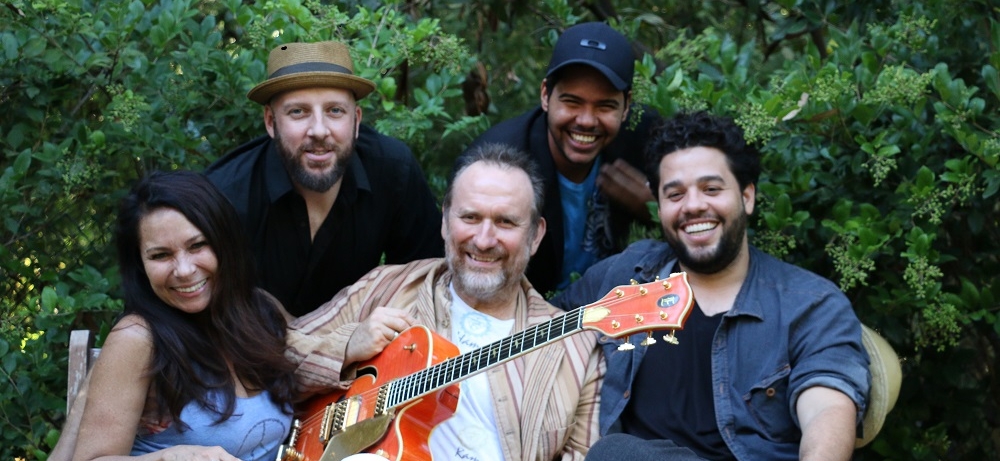“Billy Joel? I like it. I’ll propose it to the others,” Willett laughs. “We sort of have this unspoken ritual now of hanging out before [a show], listening to some old Rolling Stones – somebody will be the DJ while the rest of us just hang out and get ready. We’re pretty mellow that way. We’ll just ease into the whole walkout. So a good DJ and whatever you can drink, that’s nice.”
Cold War Kids released their fifth album, Hold My Home, towards the end of 2014. Its lead single, All This Could Be Yours, dropped some months earlier and proved to be a bellwether track for where the band were heading following 2013’s Dear Miss Lonelyhearts. Critics hailed it as a sign of the Kids at the top of their game, but when next single, First, made it to #1 on Billboard’s Alternative chart, even the band were surprised. Now Willett is focused on putting those experiences into perspective, and hoping the band will have new material ready for their Australian tour in March.
“There’s a small chance we’ll have a couple of new songs ready in time,” he says. “I really hope that we can, because the new stuff we’re working on is really strong. I think I have a vision for what we’re doing like never before. I think the success of First taught me a lot about how to keep all these artistic elements. Even the lyrics to that song are a little bit messy; they’re not straightforward. Not linear, though the song itself is quite straightforward. It’s a pop song. Sometimes ambiguity can be powerful. I don’t know, I think very often people are reading their personal lives into our lyrics, and we’re a band that’s managed to lay low enough where nobody really knows that much about us. And that really is the best thing because you let the song speak for itself. I’ve learned that this is what we do well, and let’s try to home in on that.”
Willett’s lyrics have long been the stuff of intense discussion amongst fans, and that’s exactly the way he wants his songs to be received; the writer at a distance, the song left to fend for itself. It’s a sentiment shared by many writers, yet it also speaks of a dying breed of artist. The world today allows little opportunity for art to flourish without being chained to endless self-promotion.
“It’s hard to think of an example contrary to that. I mean, look at Kafka. He died before anyone read a story of him, and he’s one of the masters of world literature. But we demand so much exposure from our artists now. It’s such an interesting question, but I think you have to be able to play with it. You have to be able to take advantage of it. Like, I love Kanye. I think that he does that, he takes advantage of exposure, but you have to have that kind of personality. If you’re a little more reclusive, much like I am, it’s a question you keep thinking about.”
Willett’s literary musings recall the Jorge Louis Borges quote: “Don’t talk unless you can improve the silence.” Is filling the silence what keeps Willett creating? Or would the obsession exist without an audience?
“Such a big question. I find the creative process full of highs and lows. You hit those moments where you’re able to do something that you’ve been dying to do, and you’re happy. And then you step away from that and suddenly you’re asking, ‘Who am I? What do I have to say?’ It’s weird. You don’t just get to do what you want all the time. Part of it is waiting for it to come to you, to be the best receiver that you can. And whatever that means – whether you have to walk around, drink all night, whatever – you have to put yourself in that place where good ideas can come to you. And I think that’s the hardest part of the creative process.
“Sometimes stuff just pops in, you’ll wake up in the middle of the night with all of these ideas. Other times you have to kind of just wait, and that’s the brutal part. That side when you’re searching for that muse, you couldn’t feel more empty. I think anybody who is a lover of art – from the highbrow to the lowbrow – I think should be working towards having a voice which is both your own, and something you’re receiving. It’s all very strange, and it really is something you just have to suffer through.”
By Adam Norris







